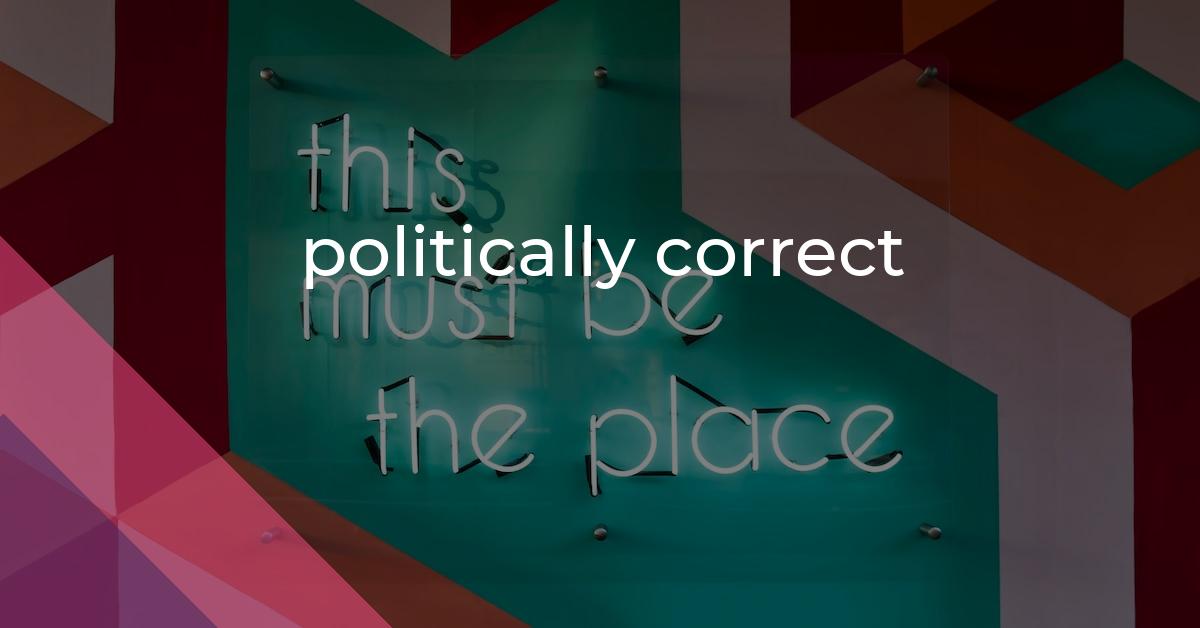politically correct: Idiom Meaning and Origin
What does ‘politically correct’ mean?
The idiom "politically correct" refers to language, actions, or policies that are deliberately chosen to avoid offending or excluding particular groups of people, particularly those relating to gender, race, or ethnicity.

Idiom Explorer
The idiom "watch one's language" means to be careful about the words one uses, especially in order to avoid saying something offensive or inappropriate.
An idiom often used to describe a person who is disliked or considered bad, with negative qualities or behavior.
The idiom "queer bashing" refers to the act of physically or verbally assaulting someone because of their perceived sexual orientation or gender identity.
Polite fiction refers to a socially acceptable but false statement or belief used to maintain harmony or avoid conflict in a conversation or situation.
The idiom "play the race card" refers to the act of using one's race as a means to gain advantage in a situation or to deflect criticism by accusing others of racism.
The idiom "play the gender card" means to use one's gender as a way to gain advantage or manipulate a situation, typically in an unfair or strategic manner.
The idiom "play politics" means to use strategic and manipulative tactics to gain advantage, often in a workplace or social setting.
The idiom "pardon my French" is a phrase used after swearing or using inappropriate language to apologize for the offensive words. It is a humorous way to acknowledge the breach of social norms and lighten the mood.
The idiom "palace politics" refers to the power struggles and intrigues that occur within a royal or political setting, where individuals compete for influence, control, and advancement.
Sensitivity to Language Changes
The idiom "politically correct" originated in the United States in the late 20th century. It gained widespread usage and became a topic of debate and controversy. The term "politically correct" refers to language, policies, or practices that aim to avoid offense or marginalization of certain social groups, particularly those related to race, gender, sexual orientation, or disability.
While often used in a derogatory or dismissive manner, the concept of political correctness emerged with the aim of promoting inclusivity and sensitivity in public discourse. The idiom "politically correct" is closely related to the idiom "mind one's language" or "watch one's language". These idioms also highlight the importance of using appropriate and respectful language when discussing sensitive topics or interacting with different social groups. By being mindful of our words, we can contribute to a more inclusive and respectful environment.
The term is believed to have first gained popularity in academic and leftist circles in the 1970s, gaining further attention through the media and political debates in the 1980s and 1990s. The idiom "politically correct" is often associated with the idea of avoiding "dirty words" or offensive language. This emphasizes the need to use language that is respectful and avoids derogatory or disrespectful terms when referring to individuals or groups.
While proponents argue that being politically correct is crucial for fostering a more tolerant and equitable society, critics claim it stifles free speech and promotes an excessively sensitive culture. However, it is important to recognize that the intention behind being politically correct is not to limit or restrict free speech, but rather to encourage thoughtful and respectful communication that takes into account the experiences and perspectives of marginalized or historically disadvantaged groups.
Some argue that the term "politically correct" has become weaponized, used to delegitimize genuine concerns and advance political agendas. It is important to approach discussions about political correctness with an understanding of the nuances and complexities involved, rather than dismissing them outright as mere political posturing. By engaging in respectful dialogue, we can work towards a more inclusive and understanding society.
The idiom has evolved over time, with its meaning shifting depending on the speaker's perspective and the context in which it is used. This highlights the importance of ongoing conversations and reflections on the use of language and the impact it has on individuals and communities. By being aware of the power of words, we can strive to create a more inclusive and empathetic society.
It is worth noting that the phrase "politically correct" has been part of various political and cultural debates outside the United States, where it may carry different interpretations or implications. This highlights the global nature of discussions surrounding political correctness and the need to consider different cultural perspectives when engaging in these conversations.
The ongoing discussions and controversies surrounding political correctness continue to shape public discourse, leading to introspection on the use of language and the establishment of what is deemed acceptable or unacceptable in a diverse society. By being conscious of the impact of our words and striving to use language that is respectful and inclusive, we can contribute to a more harmonious and understanding society.
As society progresses and new challenges arise, it remains to be seen whether the idiom "politically correct" will continue to evolve or if new idioms will emerge to capture the nuances of our ever-changing social, political, and cultural landscape. Regardless of the specific terminology used, the overarching goal should remain the same - to promote fairness, respect, and inclusivity in our interactions and exchanges of ideas.
Example usage
"She carefully chose her words to ensure that she remained politically correct during the debate."
"The company issued a politically correct statement in response to the controversial allegations."
"The student was reprimanded by the teacher for not using politically correct language."
More "Language" idioms



